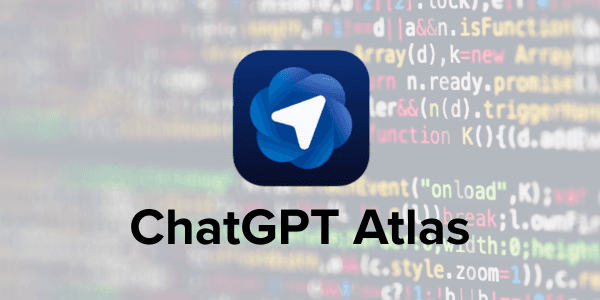OpenAI has launched its first web browser: ChatGPT Atlas. However, this AI-powered browser brings unexpected challenges for advertisers and marketers worldwide.
ChatGPT Atlas combines browsing with artificial intelligence.
The new browser is currently available for Mac users at chatgpt.com/atlas, with versions for Windows, iOS, and Android in development. Atlas functions as a standard web browser but integrates ChatGPT in a sidebar for immediate AI support while browsing.
Notably, Atlas uses Google Search for its search functions, rather than Microsoft Bing, despite the strong partnership between OpenAI and Microsoft. The browser displays search results with vertical tabs for web, images, videos, and news, with each category containing a direct link to Google.
Atlas offers users the ability to rewrite content in Gmail, perform tasks through AI agents, program, and even shop with AI assistance. The browser combines personalization with memory to enhance user experiences.
Advertisers should expect higher costs and polluted data.
Software company Search Atlas warns of a significant issue: ChatGPT Atlas can click on advertisements in a way that is indistinguishable from real users. Because the browser is based on Google Chrome, advertising networks and websites recognize the activity as legitimate user behavior.
These AI clicks can subtly impact advertising budgets, with companies paying for interactions from artificial intelligence instead of potential customers. As a result, website analytics can become unreliable, disrupting marketing decisions and ROI measurements. Most platforms prohibit bot traffic, but current detection methods are still unable to identify AI agents like ChatGPT Atlas as non-human traffic.
Practical steps for businesses
Companies can monitor unusual traffic spikes or click patterns in their analytics. In the case of suspicious activity with declining conversion rates, it is important to inform marketing teams and advertising providers.
Search Atlas founder Manick Bhan predicts that platforms like Google and Meta will need to develop new standards to distinguish human traffic from AI agents. The rise of AI browsers makes accurate traffic verification increasingly important.

